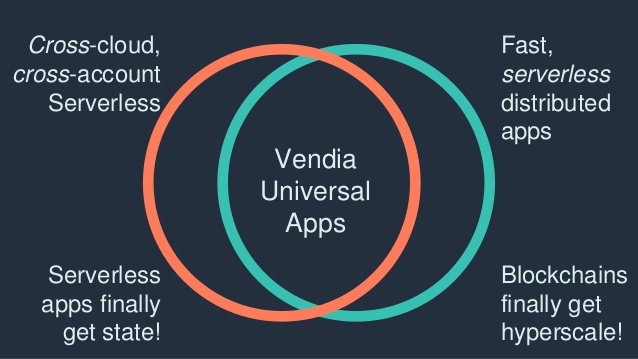Blockchain Business News 8-14 February
Stay updated with the latest blockchain news in business: subscribe to our blog notifications!
The blockchain technology market will grow at almost 63% CAGR through 2026 reaching $52.5 billion
According to ResearchAndMarkets’ latest report on blockchain, the blockchain technology market will grow at 63% by 2026 to $52.5 billion.
Important findings for the business environment:
- Distributed ledgers and other blockchain capabilities are rapidly expanding outside finance;
- The preponderance of blockchain revenue will be derived from 3 types of services: Blockchain-as-a-Service (BaaS), Cloud Computing (hosting and data as a service), and Systems Integration;
- Companies like Accenture will lead the charge for systems integration and companies like Amazon, Dell, HPE, and IBM will lead for BaaS and Cloud Computing;
- Integration and operation of Blockchain technology will redefine how various industries operate, dramatically improving efficiencies, and reduce the cost of doing business.
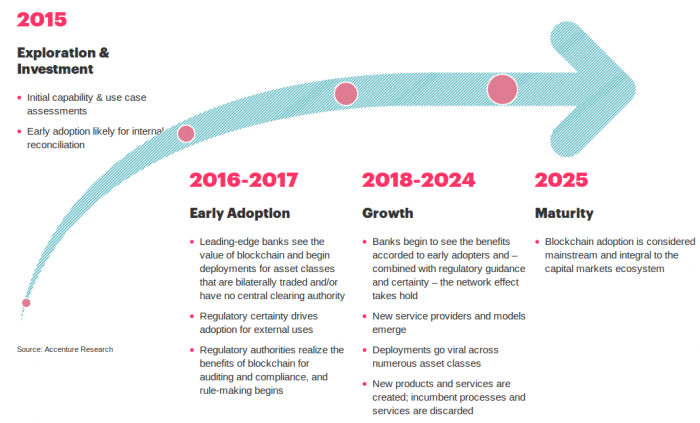
Blockchain fixes the ‘problem of paper’ in the bank guarantee process
In 2019, IBM and three of Australia’s finance heavyweights announced the formation of Lygon, the blockchain-based platform for bank guarantees.
Lygon is touted by the group as reducing the time to issue a bank guarantee from up to one month to one day.
The Lygon platform runs on the IBM public cloud and it leverages the IBM Blockchain Platform, which is built on top of Hyperledger Fabric, an open-source blockchain project from the Linux Foundation.
On February 9, Lygon announced minting the industry’s first standardised digital bank guarantee which solves the problem of paper.
What is the problem of paper?
Lygon CEO Justin Amos explains:
“Paper is slow, this is why we use emails; paper is expensive, and it’s estimated there are over 1 million journeys alone in Australia transporting paper guarantees. {…} Paper often gets lost and can be easily spoilt, subject to fraud, and problematic to amend.” “We shouldn’t underestimate the environmental impact of using paper,” he added.
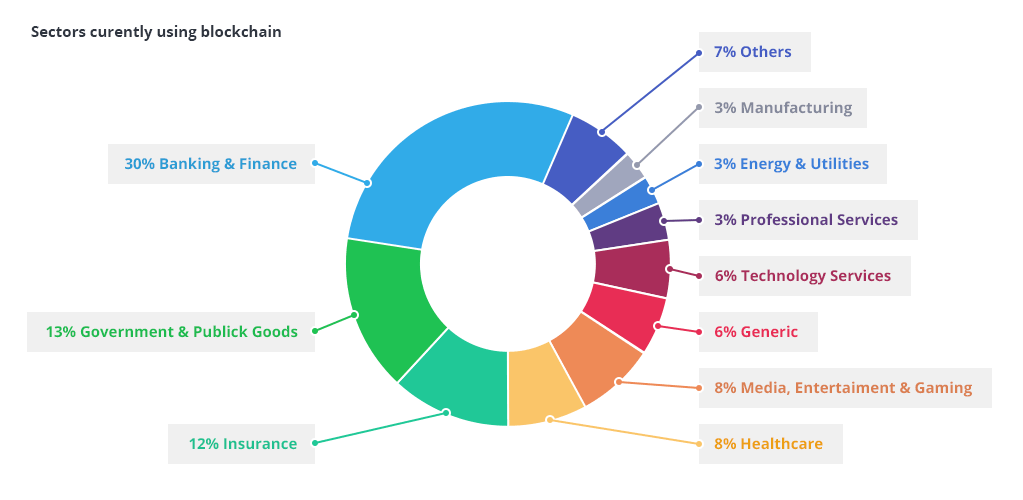
source: dzone.com
BMW backs enterprise blockchain startup Vendia in $15.5m Series A
Vendia is a multi-cloud serverless platform for sharing distributed data in real-time.
The blockchain technology startup has recently announced it had raised a $15.5 million Series A funding round for its serverless SaaS blockchain solution, bringing total funds raised to more than $20 million. One of its investors is BMW i Ventures.
BMW i Ventures is the corporate venture capital arm of BMW and has been actively investing since 2011. With an initial venture capital of 100 million dollars, BMW i Ventures invests in cutting-edge solutions focusing on BMW’s current and future business in the technology and customer & service space.
The team at BMW i Ventures manage investments in technology companies in the US, EU and Israel.
Here are some of the companies the venture capital firm has invested in:
- Verusen is AI-based inventory optimization software;
- Zendrive leverages mobile sensor data to provide actionable insights that improve safety for drivers worldwide;
- Urgent.ly is BMW’s vendor partner for roadside assistance;
- STRIVR platform utilizes immersive VR to help individuals learn faster and more effectively.
Blockchain payments Startup Celo Raises $20M
Celo is a global payments infrastructure that makes financial tools accessible to anyone with a mobile phone.
The platform is a proof-of-stake blockchain built on Ethereum, designed to support stablecoins and tokenized assets while utilizing mobile numbers to secure a user’s public keys.
According to the company’s latest press release, Celo has raised $20 million from renowned investors like a16z (Andreesen Horowitz), whose previous investments include Facebook, Slack, Asana, Lyft and more.
Since its launch in 2017, Celo developed a mainnet, a native token (CELO), a stablecoin (cUSD), a mobile payments app and has been listed on major exchanges including Coinbase and Binance.
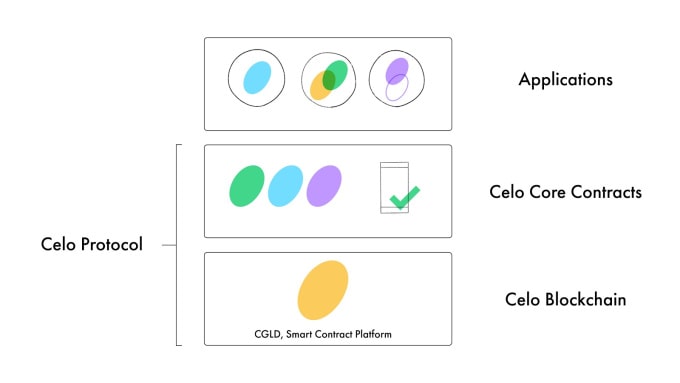
source: techcrunch.com
Blockchain technology to be used against counterfeit products in China
Future FinTech and China Foundation of Consumer Protection have announced they signed a cooperation agreement to use blockchain technology against counterfeit products. The cooperation will expire on January 31, 2026.
Future FinTech is a leading blockchain e-commerce company and a service provider for financial technology. The company’s operations include a blockchain-based online shopping mall platform, Chain Cloud Mall, a cross-border e-commerce platform (NONOGIRL) and an incubator for blockchain-based application projects.
Cloud Chain Mall is the first C2C blockchain shopping mall operated with blockchain anti-counterfeiting tracing technology.
The goal of this agreement is to build the quality and safety credit system for Chinese brands and enterprises and protect the legitimate rights and interests of the enterprises and their brands.
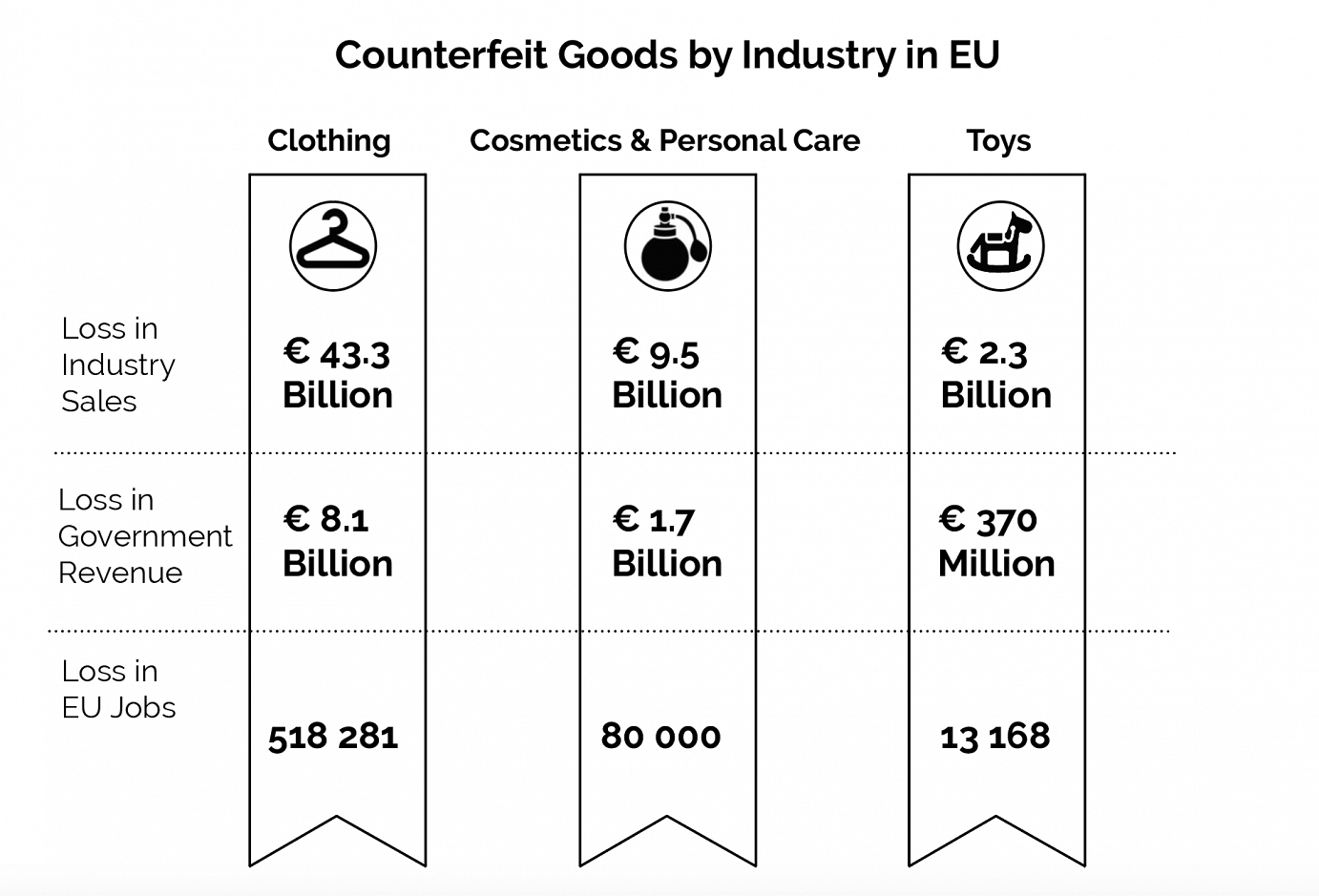
source: Bologna Business School
Quote of the week

Marc Cuban / source: Inc. Magazine
It’s like the early days of the internet’ when a lot of people thought we were crazy
Investor and self-made billionaire Marc Cuban on blockchain
Join the Conversation
We’d love to hear what you have to say.
Get in touch with us on our LinkedIn Page, Facebook Page, Twitter or TikTok.
IBM will launch the largest quantum computer for external use
IBM will soon launch a 53-qubit quantum computer.
Find out more in the video!
IBM Created the World’s Smallest Computer
IBM is set to be making history as it has announced the designing of the world’s smallest computer ever. The computer is 1mm x 1mm, smaller than a grain of fancy salt and will cost less than ten cents to manufacture. It will also pack “several hundred thousand transistors,” according to the company. These will allow it to “monitor, analyze, communicate, and even act on data.”
This computer will be a data source for blockchain applications. It’s intended to help track the shipment of goods and detect theft, fraud, and non-compliance. It can also do basic AI tasks, such as sorting the data it’s given. – Mashable
And, according to IBM, this is only the beginning. “Within the next five years, cryptographic anchors — such as ink dots or tiny computers smaller than a grain of salt — will be embedded in everyday objects and devices,” says IBM head of research Arvind Krishna.
Personalization online shouldn’t be too personal
We don’t like to be looked at in groups anymore. We hate the idea of being seen as one and the same as others around us. We want to brands to find a way to address us and our desires and issues with a personalized message, with an as clear as possible idea of whom we really are, each one of us. It’s a reality that more and more quantitative and qualitative researches show. For example, according to eMarketer, 80% of users find emails with personally recommended products helpful – but can be turned off by display ads that follow them around the internet as they read the news or check Facebook.
“Users like it when they feel like you’re helping them, not when you know where they live or publicise your purchases.Essentially, it’s important to find that sweet spot where personalisation doesn’t feel too personal. This personalisation works because it adds value to their experience. It helps them find what they want. It’s streamlined and doesn’t follow them around as the browse elsewhere. It’s personal, but the user itself controls the action. If that email converts, it’s because the user themselves opened it and decided they wanted to buy. It’s a reminder as opposed to a salesman following them around a store, asking “do you want this now? How about now?”,” said Gurmeet Lamba, chief operating officer at Sentient Technologies, for Campaign UK.
According to Econsultancy’s Quarterly Digital Intelligence Briefing: 2016 Digital Trends, the priorities that sit atop marketers’ lists are tied together by their focus on the individual: personalization (31%), content optimization (29%) and social media engagement (25%) are overlapping capabilities with the customer at the center. Moreover, nearly half (46%) of respondents rank the process of creating a cross-team approach with the customer at the heart of all initiatives as 4 or 5 on the difficulty scale.
In terms of marketing, personalization is when content is tailor-made with an audience segment or individual user’s characteristics or preferences in mind. This is typically based on previously collected or readily available data, such as website browsing behavior and interests on social media.
By doing so, marketers have a better chance of meeting consumer needs more effectively and efficiently, as content will be written about particular subjects or with a certain tone of voice, published on appropriate platforms, and promoted through relevant channels. This also results in easier, faster and better interactions with online audiences, which can contribute to user satisfaction, strong relationships, and brand loyalty.
A study conducted by Yahoo finds that most consumers are not only aware of online personalization, with 78% of those surveyed expressing a desire for some type of personalized content. And, according to Piers North, strategy director at Yahoo UK, quoted by The Guardian, the greatest opportunity for marketers today lies in managing personalization on mobile devices. He admits, however, that this is not easy and he points out that access to data is the key.
Therefore, personalization should be done with a lot of attention in order to be relevant and bring true value to the table. Despite all the opportunities that might occur in the online business today, for increased personalization, it’s important not to personalize for personalization’s sake – nor to become fixated on the latest tools or techniques.

In fact, Michael Smith, marketing leader for mobile and social business at IBM, quoted by Lucy Fisher for Marketing Week, warns it is easy to chase after personalization strategies “just because you can”. He says: “Customers want engagement with some brands, but not others. Whatever we do, it has to be with the customer in mind”.
We leave you here , with a psychological explication about why people love and crave for customized experiences.


